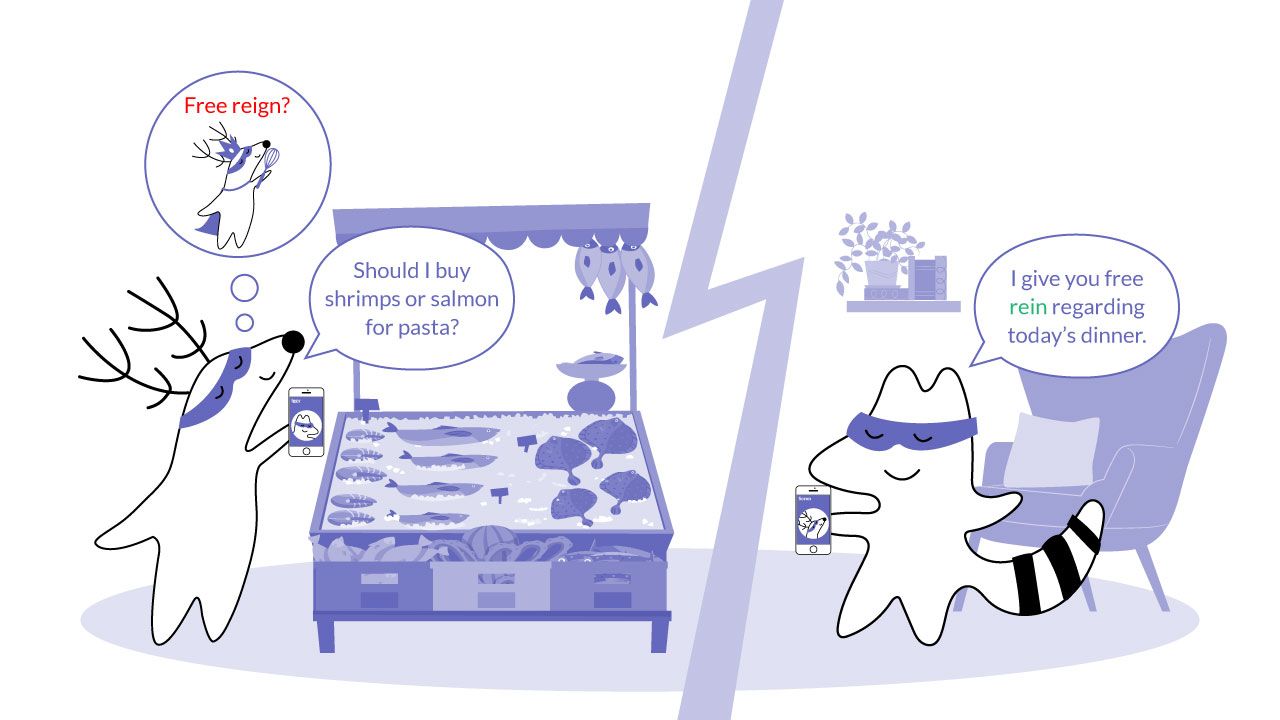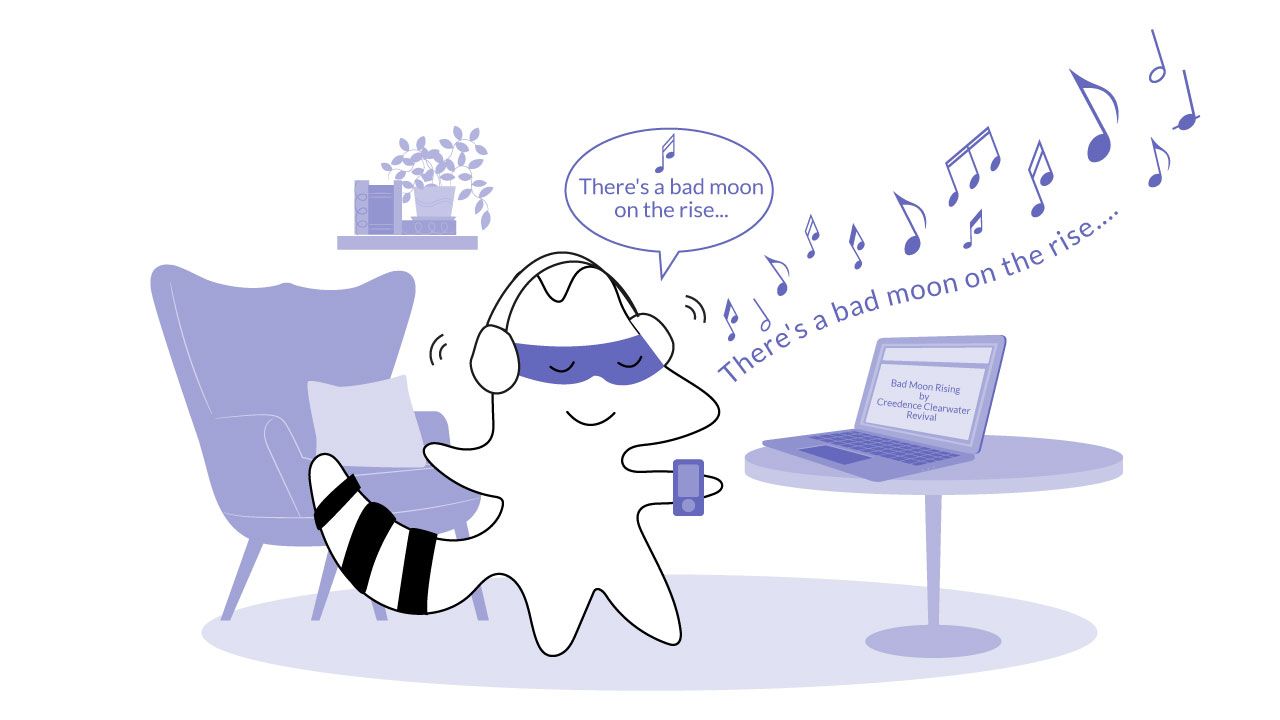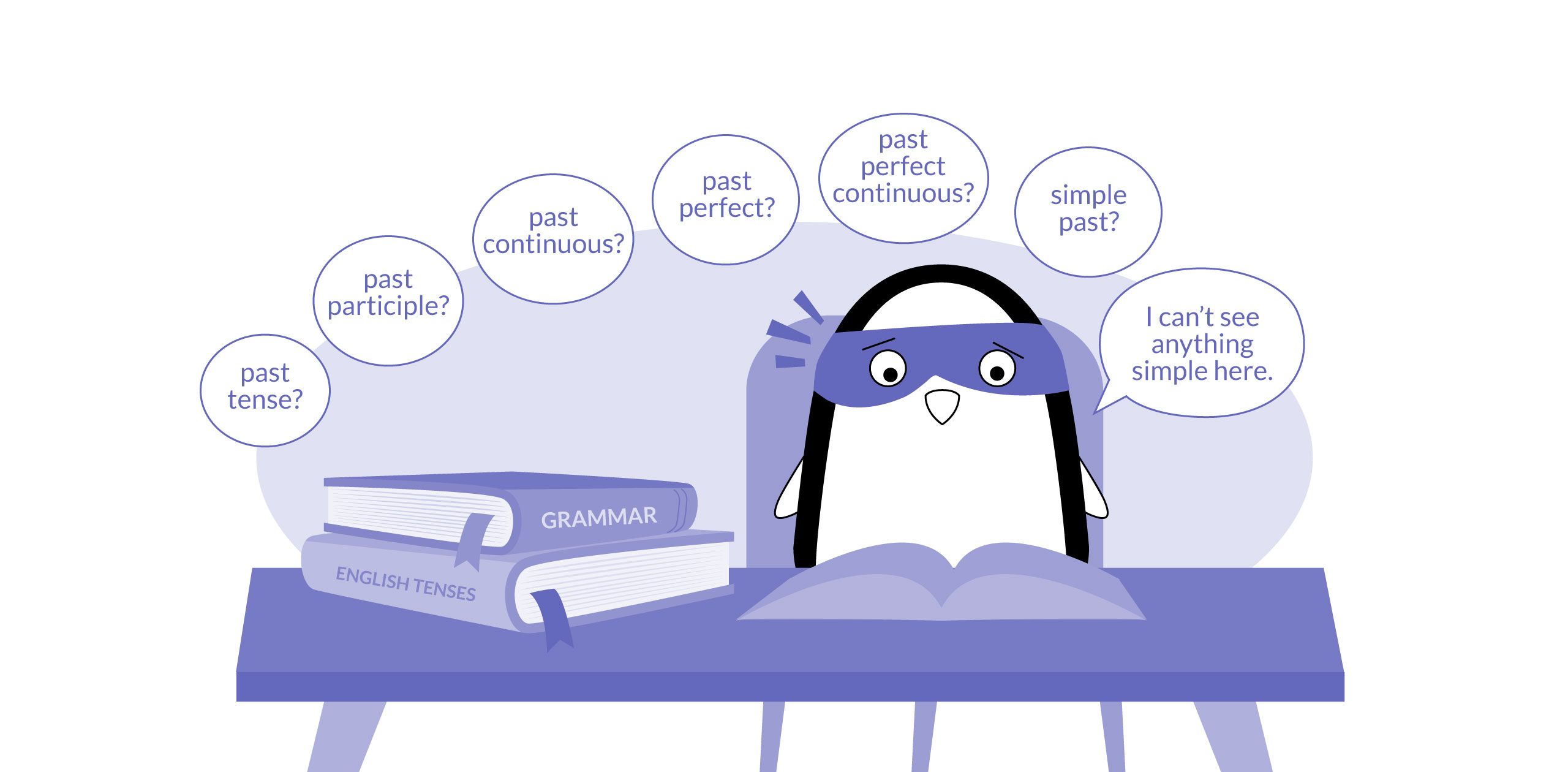
In our previous post about the most common English spelling mistakes, we've already talked about homophones - words that sound the same but have different spellings and meanings. However, in addition to similar-sounding words in the English language, there are also a lot of phrases, fixed expressions, and idioms that sound alike and are easy to confuse.
In this article, we will show you several pairs of commonly misheard phrases in English that are often misleading for non-native English speakers. Understanding and memorizing them will allow you to avoid getting into awkward situations when speaking with foreigners.
Eggcorn or Mondegreen?
Misheard words and phrases are a pretty common thing in the English language - so common there are specific terms to describe different common types of mishearing mistakes. In this article, we will talk about eggcorns and mondegreens.
Eggcorn
Eggcorn is a word or phrase that sounds like and is mistakenly used in a seemingly logical way for another word or phrase either on its own or as part of a set expression. In other words, an eggcorn is a misheard word or phrase that still retains the meaning of the original word or phrase.
For instance, "deep-seeded" is a widely common eggcorn for "deep-seated" - even though one phrase is correct and the other isn’t, you’ll still probably be understood if you use the wrong one. You'll find more information on this one below.
Mondegreen
On the other hand, a mondegreen is a form of error arising from mishearing a spoken or sung phrase. American writer and editor Sylvia Wright coined it from mishearing song lyrics of a Scottish ballad, The Bonny Earl of Murray:
"They have slain the Earl O' Moray, / And laid him on the green" was misheard as "Lady Mondegreen."
One of the more famous examples is a newly minted expression, "doggy-dog world" used instead of the correct phrase "dog-eat-dog world," immortalized in Snoop Doggy Dogg's single Doggy Dogg World. The meaning of the actual idiom is "it's ruthlessly competitive out there, so you've got to fight to get yours.

Because of their nature - mishearing - both eggcorns and mondegreens are not a big deal when talking, but they can lead to confusion and misunderstandings in written English. Here are the most commonly misheard phrases in English you should know about:
Tight with Money vs. Tight on Money
If you want to describe a stingy person, you need to use the phrase, "to be tight with money." To make sure you're using this expression in a correct way, check if you can replace it with synonyms such as "stingy," "greedy," "tight-fisted," or "miser." Here are the examples of the correct usage of "tight with money":
- They are tight with money because they know how hard they've earned it.
- My father has always been tight with money, but I am, on the contrary, a big spender.
The phrase "tight on money" means that someone doesn’t have a lot of money. You can replace this phrase with another common phrase "short on cash," which has the same meaning. For example:
- If you neglect money management, you'll find yourself tight on money at the end of the month.
- Let me know if you are tight on money - I'll do my best to help you.
For All Intents and Purposes, Not For All Intensive Purposes
The expression "for all intents and purposes" should be used in the meaning of "for every desire and possible use," "in every practical sense," "in every important respect." Its most common synonyms would be "practically," "effectively," "essentially," and "virtually."
On the other hand, "for all intensive purposes" means "for all these very thorough purposes," which doesn't make sense. It’s simply an incorrect phrase. Here is an example of the correct one:
- For all intents and purposes, the case is closed.
To Date Vs. Up-To-Date
The phrase "to date" is suitable if you want to convey the same meaning that the expressions "at the moment" and "at the present time" have. It can be used both at the end of a sentence and at the beginning, for example:
- To date, we've sent out more than 300 Christmas postcards.
- This novel is regarded as her best literature work to date.
The word "up-to-date" is used to describe something as "modern," "newest," "relevant," and acts as an adjective in the sentence. It can also mean that something "contains the latest information." Here are the examples of using this word correctly:
- It is important to keep your antivirus software up-to-date to prevent your electronic devices from hackers.
- She wants to buy an up-to-date version of a smartwatch.
Deep-Seated, Not Deep-Seeded
Deep-seated is the correct version. It means that something is firmly fixed in place, not that it is planted deeply, as the other phrase implies. For example:
- The country is still suffering from deep-seated economic problems.
- I can see a deep-seated curiosity in your eyes.
Beck and Call Vs. Beckon Call
The correct way to write this phrase is "beck and call." The word "beck" is a shortening of "beckon," which means to summon or signal, typically with a wave or nod. In fact, it is a part of the idiom "to be at someone's beck and call," which means to be ready to react to their commands immediately.
- No matter what time of day it is, she is always at his beck and call.
- Whatever you need me, I'll be at your beck and call.
As you can see, "beckon call" is a commonly misheard phrase, and is not the correct way to spell the idiom.

Hunger Pangs, Not Hunger Pains
Although you can indeed experience pain related to hunger, "hunger pangs" is the correct term in medicine referring to cramps caused by hunger. For example:
- You can add an energy bar to avoid mid-morning hunger pangs and a protein drink for mid-afternoon.
You've Got Another Think Coming, Not You've Got Another Thing Coming
The original phrase is, "If that's what you think, you've got another think coming." It's just that most people drop the first clause to shorten the expression. It can be used when you need to tell someone that they are wrong about something and need to have another think about it.
However, these two phrases are commonly used and mean the same thing, so there is no fundamental difference in which one is the correct phrase. Still, considering that "you've got another think coming" came first, you can stick to it.
Butt Naked Vs. Buck Naked
According to Merriam-Webster dictionary, "butt naked" and "buck naked" are both defined as "completely naked" and can be used as synonyms. The only difference is that "butt nacked" is considered a newer expression that refers to a person's buttocks. It can be considered a bit more rude than “buck naked.”
On the other hand, among other theories, the word "buck" is used to refer to buckskin - the skin of a male deer, an animal often found in a nude state. When describing that someone is "fully nude," feel free to use whichever phrase seems to be more appropriate for the context.
Free Reign Vs. Free Rein
The phrase "free rein" means "unrestricted liberty of action or decision" and originated from horseback riding when you hold a horse's reins loosely so that it can move freely. On the other hand, "free reign" implies an unbridled royal authority to do as one pleases.
Although the second phase makes sense, it is actually wrong and is an eggcorn. Here is how to use the correct phrase in the sentence:
- She gave him free rein to do what he needed to.

Exact Revenge, Not Extract Revenge
To "exact revenge" means to punish someone who has hurt you, to get back at someone who has done something bad to you. In this phase, the word "exact" is used as a verb, which means to demand and obtain something, most often with the use of force. For instance:
- He left in a rage and vowed to exact revenge when they met again here.
On the other hand, "to extract revenge" is an eggcorn that implies you are literally pulling revenge out of someone else, which makes little to no sense.
The Bottom Line
As you can see, it is important to pay close attention to spelling in English, as well as to the prepositions you use - choosing the wrong one can change the whole meaning of the phrase. And while such mishearing mistakes are less noticeable when talking, they can become problematic when used in writing.
In order to not get confused and avoid misunderstandings, it is important always to get to know the meaning of the phrase you are going to use to have a better idea of how you can use it in the sentence.

You may also consider downloading our Langster app to improve both your listening and writing skills. It is full of bite-sized stories with audio from native speakers to help you pick up proper phrasing.









